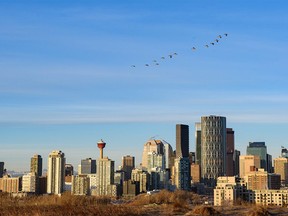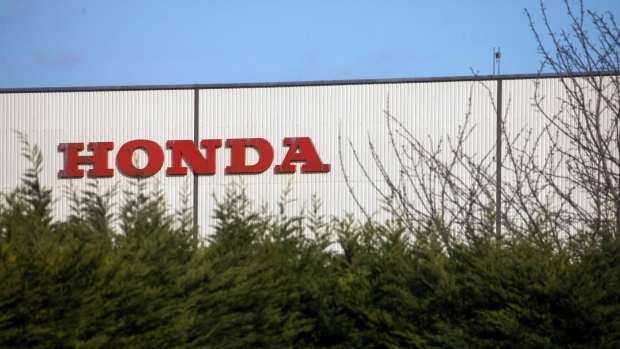Alberta’s oil and gas industry struggles to attract entry-level workers

Article content
CWC Energy Services once had 100 job openings this summer.
advertising 2
Article content
The company’s president and CEO, Duncan Au, said the Calgary-based oilfield services business has been struggling with months of hiring challenges, and that’s not the only challenge.
Article content
CWC is especially short of frontline workers. A field worker works on-site during the life of a well before laying pipes on his rig to pump oil or natural gas and ultimately assisting in the decommissioning of the well. This is the kind of entry-level job that has been the backbone of Alberta’s oil and gas industry. He has a history of attracting workers from all over the country because he could earn a six-figure income with few formal qualifications.
Article content
Au said that while there wasn’t necessarily a shortage of applicants for open vacancies, there were other pitfalls in the hiring process. From no-shows, to interviews, to new hires disappearing after orientation, to those who decided after a few shifts that long hours of manual labor weren’t for them, staying in a position wasn’t easy.
“Like nearly all of our competitors in the industry, it’s the lowest, entry-level positions that are hard to fill,” says Au.
“What’s happening now is that if you’re desperate enough, you’re giving your competitors more money to try and steal your hand. We’ve seen that happen this winter. The man was paying $7 more an hour than we were paying.”
advertising 3
Article content
Alberta’s oil and gas industry has experienced cycles of boom and bust, which has always affected the workforce. But the past two years have been another kind of roller coaster, from the negative oil price per barrel in April 2020 to the current surge in demand.
Companies like Au cut their workforce to a fraction of normal at the start of the COVID-19 pandemic and are now struggling to regain full strength. As of May 1st, CWC has increased his total compensation for his five service rig crew by 17%.
“We hope to bring new talent back into the industry and help solve labor issues,” says Au.
Alberta unemployment spends summer at record low
Advertising 4
Article content
Alberta’s unemployment rate is low, most recently dropping to 4.9% in June and July before jumping to 5.4% in August, according to Statistics Canada’s latest Labor Force Survey . The labor rate in July was the lowest in the province since 2015, but is still not officially below the 4.5% threshold Alberta uses to define a labor shortage.
University of Alberta economist Joseph Marchand says the story of Alberta’s labor shortage is industry-specific. His June stats from the state’s economic dashboard showed unemployment in the mining, quarrying and oil and gas industries at just 1.6%, the lowest among industries surveyed.
Alberta has an unemployment rate of 1.7% in the information, cultural and recreation sectors, which is slightly higher, and an unemployment rate of 2% in the health and social assistance sectors.
Advertising 5
Article content
There isn’t necessarily a big difference in how these numbers play out across the state, especially in Calgary and Edmonton. However, these problems have always been more acute in rural areas. Major tourist destinations such as Banff are also bearing the brunt of hotel staff shortages.
COVID-19 has severely impacted all of these industries in one way or another, and Marchand said there’s likely still an element of the “COVID hangover.”
In particular, Marchand has studied how energy booms and busts affected labor markets in western Canada. But while the signs point to an upcoming boom, it doesn’t look the same as before. It also influences the decisions workers make.
Advertising 6
Article content
“Think of any other time it heats up. Newspapers will get hit with the announcement of this project and that project. I’ve seen one or two in the last two years, but really, We don’t see any big capital investment.”
Opening ever higher positions in some of the energy sectors
Gurpreet Lail, president and CEO of the Petroleum Services Association of Canada (PSAC), said an informal survey of PSAC members in the spring found more than 2,000 job openings.
“We’re at an all-time high with open positions and not having enough body,” she said.
She and others in the industry point to high-profile conversations about climate change and the need for an energy transition as another factor in workers’ struggles.
advertising 7
Article content
“Many of our young people had heard that[oil and gas]had no future. I have to come back to
Alberta’s oil companies also have a long history of hiring workers from the Maritime Provinces, and Au and others say labor flows to the West have not returned to normal.
The ‘Atlantic Bubble’ during the height of the pandemic has forced some workers who had been away from home to return to the East to stay there, and many have not. Whether the time apart made them decide the fly-in, fly-out life was no longer for them, or they decided the prospect of dealing with beleaguered air travel just wasn’t worth it. However, economic liquidity in Canada has changed.
Advertising 8
Article content
“For example, we haven’t had a major recruiting drive to the East Coast, as we did in the pre-recession years,” says Au.
“We continue to try to attract people there, but we hear from other competitors that their recruiting efforts there are not paying off.
Au said in July that the company had made great strides in closing the employee gap, but it’s still trying to keep more employees on board once they’re through the door. There are referral bonuses for employees who are successful and refer new hires.
“They have to believe that if they’re going to come back into this industry, it’s going to be years in the making,” Au said.
“I think this is going to be a long-term one, but this time it’s a little different, because oil and gas companies are much more disciplined than past boom-bust cycles.”
Advertising 9
Article content

Other job shortages across Alberta
nurse: According to Alberta’s Job Market Forecast, Alberta is expected to face a shortage of registered nurses and registered psychiatric nurses over the next two years. Advocates have raised the issue of working conditions and wages for nurses across Canada for years, but COVID-19 has exacerbated the problem, causing burnout and leaving some nurses behind schedule. They are either retiring early or changing jobs completely.
Hotel staff: The hospitality industry has been one of the hardest-hit during the toughest period of public health restrictions to contain the number of COVID-19 cases. Business and leisure travel has come to a complete halt, forcing hotels to resort to massive layoffs. Some employees were rehired and laid off again during another wave of his COVID. As a result, Dave Kaiser, president and CEO of the Alberta Hotel Lodging Association, says the industry has lost most of its workforce for good.
advertising 10
Article content
“Some people have given up on their perception of precarious employment and found work in other sectors as the economy reopens,” he said. “And now there are holes that need to be filled.”
What other employers are saying about hiring challenges
Scott Tetz, president and founder of Sherwood Park-based Truck Parts Solutions, said:
“It’s a really tough market for programmers. We have IT positions that have been open for about a year… (we’ve changed) We’ve changed the wording of the job ad, emphasized the impact it has on the company, and changed how the interview process works. In the same way, obviously, with inflation, wages also differ.”
Step Energy Services President and COO Steve Glanville said:
“We drive a lot of heavy tractor-trailer units, trucks to and from the road. So the biggest obstacle for us was finding a qualified Class 1 driver. is very creative and considering changing work schedule, it used to be like 2 weeks work and 1 week off, a little bit more to have more time in terms of work life balance We are looking at flexible schedules and have begun hiring on the East Coast.”
Sam Jenkins, managing partner at Edmonton-based software development company Punchcard Systems, said:
“We have been trying to hire a lead for our development team for months. I think one real truth is that there are basically more jobs than people in the industry and this is a global talent shortage when it comes to technology.”
masmith@postmedia.com
Alberta’s oil and gas industry struggles to attract entry-level workers
Source link Alberta’s oil and gas industry struggles to attract entry-level workers





